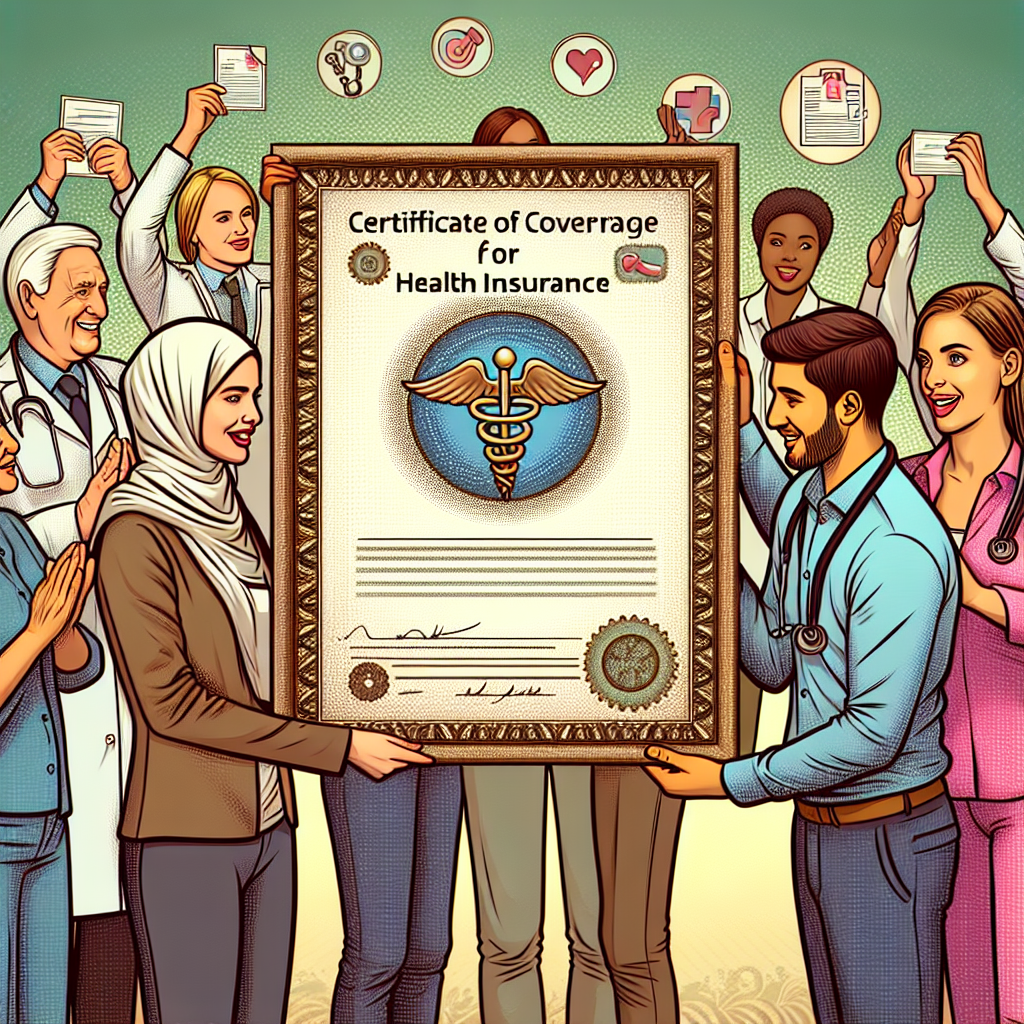Filed under Health Insurance on
How to Write an Effective Health Insurance Coverage Letter

Writing an effective health insurance coverage letter is an essential task that many individuals encounter when dealing with healthcare services. Whether you're appealing a denial, seeking clarification on benefits, or addressing a billing issue, a well-crafted letter can make a significant difference in the outcome of your case. This guide is designed to help you navigate the complexities of health insurance communication, ensuring your letter is clear, concise, and impactful.
Understanding the Purpose of Your Health Insurance Coverage Letter
Before diving into the writing process, it's crucial to understand the specific purpose of your health insurance coverage letter. Are you disputing a denied claim, seeking approval for a procedure, or requesting additional information about your policy? Having a clear objective will guide the structure and content of your letter.
Key Components of an Effective Health Insurance Coverage Letter
1. Clear Introduction
Begin your letter with a concise introduction that identifies who you are and why you're writing. Include essential details like your name, policy number, and any relevant contact information. For example, "My name is Jane Doe, and I am writing to address a denied claim under my policy number ABC12345."
2. Detailed Explanation of the Issue
Next, provide a thorough explanation of the issue at hand. Use clear and simple language to describe the situation, the services involved, and the dates in question. This section should be factual, avoiding any emotional language while ensuring all necessary context is provided.
3. Supporting Information and Documentation
Always back up your claims with supporting information or documentation. This could include medical records, bills, or correspondence from healthcare providers. Reference these documents in your letter to reinforce your case. For example, "Attached is a copy of the bill from Dr. Smith dated January 15, 2023, which supports my claim for reimbursement."
4. Clear Request or Desired Outcome
Be explicit about what you are asking for. Whether it's an appeal of a denied claim, a correction of a billing error, or approval for a medical procedure, state your request clearly and politely. For instance, "I am requesting a review and reversal of the decision to deny reimbursement for the X-ray performed on January 10, 2023."
5. Professional Closing
Conclude your letter professionally. Thank the recipient for their time and consideration, and provide your contact information for any follow-up. A closing such as "Thank you for your prompt attention to this matter. Please contact me at (phone number) or (email) should you require further information" leaves a positive impression.
Practical Tips for Writing Your Health Insurance Coverage Letter
Keep It Concise
Avoid overly lengthy explanations. Stick to the facts and make your points clearly and succinctly. Busy professionals appreciate communication that gets to the point.
Use Formal Language
Maintain a professional tone throughout your letter. Avoid slang or overly casual language. Remember, this is a formal document that may influence the decisions of insurance professionals.
Stay Focused on the Objective
Resist the urge to include unrelated information. Focus purely on the issue at hand and how it relates to your request or complaint.
Be Polite and Respectful
Show respect for the recipient, regardless of the frustration you may feel. Politeness can go a long way in encouraging a positive response.
Proofread and Edit
Thoroughly proofread your letter to catch any mistakes or unclear language. Consider having someone else review it as well, to ensure clarity and professionalism.
Real-Life Example of a Health Insurance Coverage Letter
Let’s look at a simplified example to illustrate these principles:
Subject: Request for Re-evaluation of Denied Coverage for Physical Therapy
Dear (Insurance Company Name) Appeals Department,
My name is John Smith, and I am writing regarding a denial of coverage for physical therapy services under my policy number XYZ56789. I received a notice dated February 20, 2023, informing me that my claim for services on January 15, 2023, was denied based on insufficient medical necessity documentation.
I have attached the necessary medical records from my primary care physician, Dr. Karen Clark. These documents provide additional context and support for the prescribed physical therapy sessions. Furthermore, I have enclosed a referral letter from Dr. Clark dated January 3, 2023, clearly stating the necessity of continued physical therapy due to my post-surgery recovery.
I appreciate your prompt attention to this matter and kindly request a thorough review of my case. I am confident that upon reevaluation, you will find the therapy necessary and eligible for coverage.
Thank you for your time and consideration. Should you need further information, I am available at (contact details).
Sincerely,
John Smith
5 Frequently Asked Questions (FAQ) About Health Insurance Coverage Letters
1. What should I include in my introduction?
Your introduction should include your full name, policy number, and a brief statement of the issue you're addressing. This sets a clear context for the reader right from the start.
2. How many pages should my letter be?
A health insurance coverage letter should ideally be one to two pages. Keep it concise while ensuring you cover all necessary details.
3. Do I need to include supporting documents with my letter?
Yes, including supporting documents is crucial. They provide evidence and context to your claims, making it easier for the insurance company to assess your request objectively.
4. How formal should my tone be?
Your tone should be professional and respectful. While passion might drive you to write, maintaining formality is key to being taken seriously by insurance providers.
5. How long should I wait for a response to my letter?
Response times can vary by company, but it's reasonable to expect a response within 30 days. If you haven't heard back after this period, consider following up.
Drafting an effective health insurance coverage letter requires attention to detail and a structured approach. By focusing on clarity, providing necessary documentation, and maintaining a polite tone, you increase the chances of achieving a favorable outcome.





